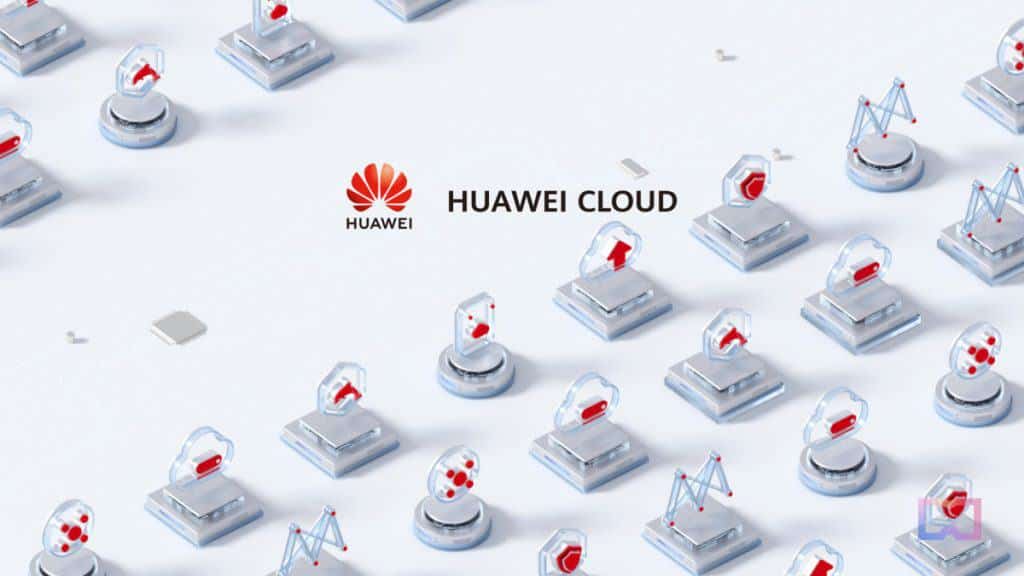Huawei Cloud Forays into Web3 with its Node Engine Service


In Brief
China’s Huawei Cloud has entered the Web3 space with its Node Engine Service (NES).
The NES allows developers to simplify blockchain network management and connect to popular blockchain networks including Ethereum, TRON, Polygon, Arbitrum, Starknet, Optimism, and other L2 solutions.
DApp developers and staking node carriers can use the NES to configure or run validator nodes.
Huawei, the Chinese multinational tech company, is taking its Huawei Cloud services to Web3 with its Node Engine Services (NES), Chinese crypto journalist Colin Wu first reported.

Developed by Huawei Cloud, the NES is a blockchain node engine platform designed to streamline the management of blockchain networks, resource allocation, and authentication. It also provides developers with the capability to connect to popular blockchain networks including Ethereum, TRON, Polygon, Arbitrum, Starknet, Optimism, and other L2 solutions, speeding up dApp development and usage.
Currently, NES offers full-node services with complete hosting capabilities and can be used by:
- DApp developers and users: They can configure nodes to interact with blockchains with dispatch.
- Staking node carriers and individuals: They can use NES to host Ethereum full nodes, including execution and beacon nodes, and run validator nodes to connect with the hosted nodes.
Huawei Cloud claims that the NES has 99.99% reliability and second-level node fault detection and recovery. Its predictive analytics and topology algorithm optimization engines give staking carriers/individuals access to their Ethereum validator nodes.
Nodes on Huawei Cloud can be staked separately. Developers interested in using Huawei Cloud’s staking node are required to purchase it, activate a validator, and interconnect the node with the validator. User guides to the NES and the staking nodes are available. Developers can also access guides to the Ethereum Node Engine and TRON Node Engine.
In the introductions to the Ethereum Node Engine and TRON Node Engine, Huawei Cloud assured users that it will never collect their blockchain addresses.
Huawei Cloud joins the likes of Amazon Web Services (AWS), Microsoft Azure, and Google Cloud in offering managed blockchain node services. In February, Huawei Cloud announced plans to integrate blockchain into its cloud services.
AWS announced its Amazon Managed Blockchain (AMB) service in April 2019 while Microsoft launched its Azure Blockchain Service a month later. In September 2021, Microsoft sunset the Azure Blockchain Service, replacing it with the Quorum Blockchain Service (QBS). Last October, Google Cloud introduced its Blockchain Node Engine as it sought to expand its Web3 footprint.
Disclaimer
In line with the Trust Project guidelines, please note that the information provided on this page is not intended to be and should not be interpreted as legal, tax, investment, financial, or any other form of advice. It is important to only invest what you can afford to lose and to seek independent financial advice if you have any doubts. For further information, we suggest referring to the terms and conditions as well as the help and support pages provided by the issuer or advertiser. MetaversePost is committed to accurate, unbiased reporting, but market conditions are subject to change without notice.
About The Author
Cindy is a journalist at Metaverse Post, covering topics related to web3, NFT, metaverse and AI, with a focus on interviews with Web3 industry players. She has spoken to over 30 C-level execs and counting, bringing their valuable insights to readers. Originally from Singapore, Cindy is now based in Tbilisi, Georgia. She holds a Bachelor's degree in Communications & Media Studies from the University of South Australia and has a decade of experience in journalism and writing. Get in touch with her via [email protected] with press pitches, announcements and interview opportunities.
More articles

Cindy is a journalist at Metaverse Post, covering topics related to web3, NFT, metaverse and AI, with a focus on interviews with Web3 industry players. She has spoken to over 30 C-level execs and counting, bringing their valuable insights to readers. Originally from Singapore, Cindy is now based in Tbilisi, Georgia. She holds a Bachelor's degree in Communications & Media Studies from the University of South Australia and has a decade of experience in journalism and writing. Get in touch with her via [email protected] with press pitches, announcements and interview opportunities.


















































